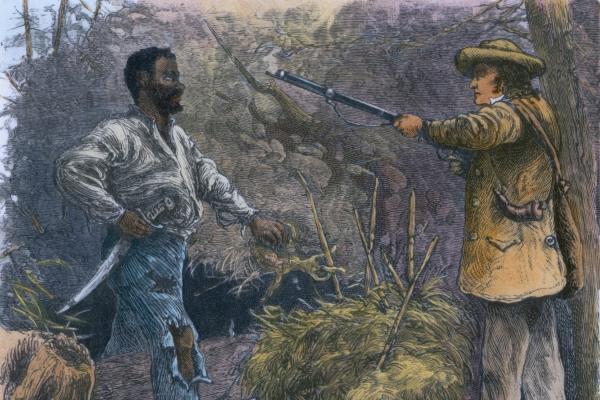WHEN ONE THINKS of black environmental liberation theology, the name of slave-rebellion leader Nat Turner might not immediately spring to mind. Perhaps it should.
A biopic on the life of Turner, called The Birth of a Nation, is scheduled for release in October. Based on early reviews, I expect the film by director Nate Parker (Red Tails, Arbitrage) to deliver a powerful recounting of Turner’s life.
In 1831, Turner led enslaved and free African Americans in a rebellion against slaveholders in Southampton County, Va. The uprising was swift, violent, and bloody. At least 200 African Americans and more than 50 whites died. After whites quelled the rebellion, Turner hid in the woods for several weeks. He was eventually captured and executed.
Turner’s time alone in the woods offers surprising insights. He is an African-American man familiar with nature. He is a Christian preacher given to visions. From that arises a deep environmental wisdom.
The original report of the slave rebellion is found in The Confessions of Nat Turner, The Leader of the Late Insurrection in Southampton VA, as told by Turner to a white lawyer in Richmond, Va. “The blood of Christ [that] had been shed on this earth, and had ascended to heaven for the salvation of sinners,” Turner says in the book, “was now returning to earth again in the form of dew.”
Turner’s visions were based on his understanding of the Bible. He was literate (that in itself was unusual for one enslaved) and worshipped God. Turner was a prophet of God, in the context of nature and revolt.
Read the Full Article

